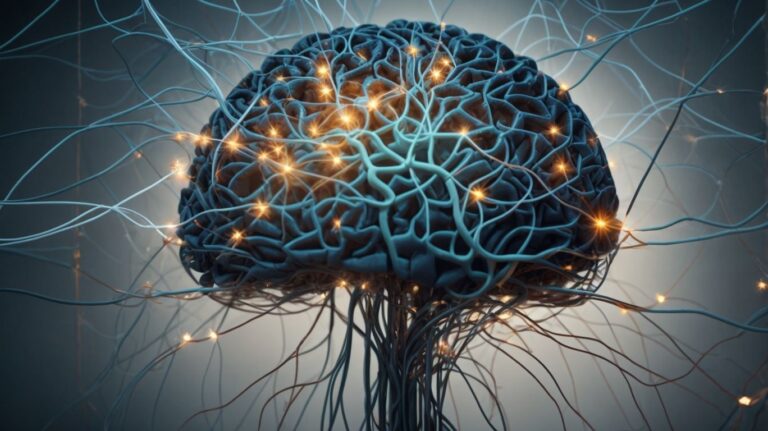Have you ever wondered about the deeper workings of the human mind and spirit? Jungian Psychology offers a fascinating exploration into the unconscious mind, archetypes, and the development of the self.
In this article, we will delve into the key concepts of Jungian Psychology, the differences between Jungian and Freudian Psychology, the practical applications of Jungian Psychology, and how you can incorporate these principles into your own life. Join us on a journey of self-discovery and introspection as we explore the world of Jungian Psychology.
Contents
- 1 Key Takeaways:
- 2 What is Jungian Psychology?
- 3 Who was Carl Jung?
- 4 What are the Key Concepts of Jungian Psychology?
- 5 How does Jungian Psychology differ from Freudian Psychology?
- 6 What are the Applications of Jungian Psychology?
- 7 How can someone incorporate Jungian Psychology into their life?
- 8 Frequently Asked Questions
- 8.1 What is Jungian psychology?
- 8.2 What are some key concepts in Jungian psychology?
- 8.3 How does Jungian psychology view the human psyche?
- 8.4 What is the role of dreams in Jungian psychology?
- 8.5 How does Jungian psychology differ from Freudian psychology?
- 8.6 Is Jungian psychology still relevant today?
Key Takeaways:
What is Jungian Psychology?
Jungian Psychology, developed by Carl Jung, is a branch of psychology that delves into the exploration of the unconscious mind and its profound impact on human behavior and development. For an introduction to Jungian Psychology, you can refer to this reputed source.
This psychological framework emphasizes the importance of individual growth, drawing attention to the role of unconscious thoughts, emotions, and memories in shaping personality and decision-making processes.
Unlike Freudian principles which focused primarily on the sexual and aggressive drives, Jungian Psychology broadens its scope to encompass collective unconscious elements such as archetypes, universal symbols and themes that Jung believed were inherited and shaped the human experience.
By analyzing dreams, myths, and symbols, Jung aimed to uncover the hidden meanings embedded in the unconscious, exploring how these insights could lead to personal transformation and self-realization.
Who was Carl Jung?
Carl Jung, a renowned Swiss psychiatrist and psychoanalyst, is best known for his pioneering work in Analytical Psychology, which revolutionized the field with his theories on the unconscious mind and archetypes.
His fascination with mythology and spirituality played a crucial role in the development of his theories, which emphasized the importance of individual symbols and the collective unconscious.
Jung’s groundbreaking concept of the persona, shadow, anima/animus, and self provided a framework for understanding human behavior and the quest for self-realization.
Through his exploration of dreams, Jung expanded the scope of psychotherapy, incorporating elements of symbolism and myth into the therapeutic process.
What are the Key Concepts of Jungian Psychology?
Key concepts in Jungian Psychology include the collective unconscious, archetypes, persona, shadow, anima, and animus, which form the foundation of understanding the human psyche and behavior.
Delving deeper into Jungian Psychology, the concept of the collective unconscious suggests that every individual inherits a reservoir of shared experiences and knowledge that transcends personal history.
Within this realm lie archetypes, universal symbols and themes that shape our thoughts and behaviors. The persona represents the mask we wear in society, the shadow embodies our hidden, darker aspects, while the anima and animus represent the feminine and masculine aspects of the unconscious, respectively.
The Collective Unconscious
The collective unconscious, a concept introduced by Jung, represents the inherited reservoir of universal experiences and symbolic imagery that influences individual and cultural behavior.
This concept delves into the shared mental framework that underlies human thought processes, emotions, and behaviors, transcending individual differences.
Archetypes are the fundamental elements within the collective unconscious, serving as universal themes that have existed since the beginning of time. These archetypes, such as the shadow, the anima/animus, and the self, are symbolic representations of core human experiences and emotions that shape our perceptions and interactions.
By tapping into these archetypes through symbols found in myths, dreams, and cultural expressions, individuals can access deeper layers of their psyche and gain insight into their inner world.
Archetypes
Archetypes, according to Jungian Psychology, are universally recognized symbols and patterns that reside in the collective unconscious, influencing human thoughts, emotions, and behaviors in profound ways.
These archetypes serve as fundamental building blocks of the human psyche, representing deep-rooted primal instincts and common experiences that connect individuals on a subconscious level. Carl Jung believed that these archetypes are inherited potentials that shape our understanding of the world and ourselves.
They manifest in various forms such as the Hero, the Wise Old Man/Woman, the Trickster, and more, each carrying distinct qualities and purposes. Through identifying and working with these archetypes, individuals can gain insight into their own psyche, navigate personal growth, and recognize recurring themes in cultural myths and legends.
Persona
The persona, as described by Jung, is the social mask or facade that individuals present to the outside world, representing the conscious identity or image one wishes to project.
In Jungian Psychology, the persona plays a crucial role in shaping how an individual interacts with society. It acts as a bridge between the inner self and the external world, influencing behavior and communication.
Persona is not the true self but rather a constructed identity developed through social interactions and cultural influences.
The persona is closely linked to the ego, which is the conscious part of the psyche responsible for mediating between the inner desires of the individual and the external demands of society. The ego works in tandem with the persona to navigate social conventions and expectations.
Shadow
The shadow, a key concept in Jungian Psychology, represents the hidden or repressed aspects of the self that are not readily acknowledged, often containing unresolved conflicts, desires, and emotions.
In the context of the personal unconscious, the shadow embodies suppressed qualities that individuals may disown or deny, projecting them onto others instead. This phenomenon can lead to the development of psychological complexes, which are patterns of emotions, memories, and perceptions centered around a particular theme.
By confronting and integrating the shadow, individuals engage in a process of self-discovery and individuation, gradually expanding their conscious awareness to encompass these previously concealed elements.
Anima/Animus
Anima and animus, according to Jung, represent the feminine and masculine aspects within the individual psyche, playing a vital role in the process of individuation and achieving psychological wholeness.
In Jungian Psychology, the anima is the unconscious feminine aspect present in men, while the animus is the masculine aspect found in women.
This concept is not about biological gender but rather about the psychological and spiritual traits attributed to each gender. Integrating these dual aspects within oneself is crucial for inner balance and personal growth.
Furthermore, the anima and animus guide individuals towards understanding their deep-seated emotions, relationships, and creativity by tapping into the unconscious. This internal journey aids in reconciling opposites and embracing the full spectrum of human experiences.
How does Jungian Psychology differ from Freudian Psychology?
Jungian Psychology diverges from Freudian principles through its emphasis on the collective unconscious, the journey of individuation, and the integration of spirituality as essential components of psychological growth and self-realization.
In contrast to Freudian Psychology, which primarily focuses on the individual’s past experiences and conscious mind, Jungian Psychology delves deeper into the collective unconscious, a reservoir of shared universal symbols and archetypes that influence personal growth and development.
While Freud emphasized the resolution of unconscious conflicts, Jung highlighted the process of individuation, the journey towards wholeness and self-realization by integrating various aspects of the psyche.
Jung’s approach incorporated spirituality as a vital component, recognizing the role of transcendent experiences and symbolic meanings in promoting psychological well-being and fulfillment.
Focus on the Collective Unconscious
One key difference between Jungian and Freudian Psychology lies in the emphasis placed by Jung on the collective unconscious, a shared reservoir of archetypes and symbols that transcends individual experiences, diverging from Freud’s focus on the personal unconscious.
Jung’s concept of the collective unconscious suggests that there are universal symbols and patterns that all humans inherit, shaping our thoughts, behaviors, and perceptions at a deeper level.
This idea challenges the notion of the personal unconscious as purely individual and instead proposes a deeper, interconnected realm that influences us all.
By acknowledging the collective unconscious, Jung opens up new avenues for understanding the human psyche and its complexities.
Therapeutically, this perspective allows for a broader exploration of symbolic meanings and cultural influences beyond individual traumas or experiences.
Emphasis on Individuation
Jungian Psychology places a significant emphasis on the process of individuation, which involves the integration of unconscious elements to achieve a balanced and authentic self, contrasting with Freud’s primary focus on the ego as the central identity.
This journey towards individuation in Jungian Psychology is not merely a psychological concept; it delves deep into the realms of spirituality and personal growth.
It highlights the importance of embracing one’s shadow aspects, confronting and integrating those facets that are often hidden or suppressed. By acknowledging and integrating both the light and dark aspects of the psyche, individuals can reach a state of wholeness and self-realization.
Integration of Spirituality
Jungian Psychology integrates spirituality as a crucial aspect of human experience and psychological growth, diverging from Freudian perspectives that primarily focus on psychotherapy and the rational mind.
By embracing the spiritual dimension, Jungian Psychology delves into the deeper layers of the unconscious, emphasizing the interconnectedness of mind, body, and spirit.
This approach views individuals not only as products of their past experiences and relationships but also as beings with innate wisdom and a collective unconscious that transcends personal history.
In the therapeutic context, the integration of spirituality allows for a more holistic understanding of mental health issues, guiding individuals towards self-discovery, healing, and integration of the fragmented aspects of the self.
What are the Applications of Jungian Psychology?
Jungian Psychology finds applications in various domains, including therapy and counseling, dream analysis, symbol interpretation, and fostering personal growth through a deeper understanding of the psyche.
In terms of therapy and counseling, Jungian Psychology delves into the exploration of the unconscious aspects of the mind. It emphasizes the importance of individuation and integration of various archetypes and complexes. This approach aims at promoting self-awareness and facilitating psychological healing by uncovering deep-seated emotional patterns and unresolved conflicts.
In the realm of dream analysis, Jungian Psychology views dreams as a gateway to the unconscious. It considers them as symbolic expressions of the inner world. By decoding dream symbols and exploring the subconscious messages embedded within dreams, individuals can gain valuable insights into their unconscious desires, fears, and unresolved issues.
Therapy and Counseling
Jungian therapy and counseling methods focus on exploring unconscious complexes, facilitating Self-realization, and integrating repressed elements to achieve psychological balance and growth.
Complexes in Jungian psychology refer to patterns of thoughts, feelings, and behaviors rooted in the unconscious, influencing an individual’s perception and decisions. The therapist helps the individual identify and understand these complexes, often through techniques like dream analysis, active imagination, and exploring archetypes.
The concept of Self in Jungian psychology represents the central, unifying force within an individual, encompassing all aspects of their personality. Through counseling, individuals are guided to connect with their authentic Self, leading to self-acceptance, healing, and personal growth.
In the counseling process, therapists may use techniques such as journaling, creative expression, and role-playing to assist individuals in integrating their shadow aspects, unresolved conflicts, and subconscious patterns. By bringing these elements to light and working through them, individuals can achieve greater self-awareness and psychological integration.
Personal Growth and Development
Jungian principles offer pathways for personal growth and development through practices such as shadow work, individuation processes, and self-exploration to achieve psychological wholeness.
Shadow work, a concept central to Jungian Psychology, involves diving into the hidden and often suppressed aspects of oneself, bringing them to the surface for acknowledgment and integration. This process of facing one’s shadow can be challenging but is essential for achieving deep self-awareness and emotional balance.
Individuation, another key principle, focuses on the journey towards achieving a unique and authentic self, separate from societal conditioning and external influences. Self-exploration techniques within the Jungian framework encourage introspection, dream analysis, and symbol interpretation to uncover layers of the unconscious mind and reveal insights for personal transformation.
Understanding Mythology and Religion
Jungian Psychology offers insights into the realms of mythology and religion by interpreting archetypes, symbols, and collective unconscious motifs present in cultural narratives, providing a deeper understanding of human beliefs and behaviors.
One fundamental concept in Jungian Psychology is the idea of the ‘collective unconscious’, a reservoir of shared symbols and archetypes that all humans inherit.
These archetypes, seen as universal patterns or symbols, manifest in cultural narratives, mythologies, and religious texts, shaping our beliefs and behaviors. By exploring how these archetypes are expressed across different cultures and time periods, Jungian analysis helps us grasp the underlying psychological drives that influence human thought and action.
Analyzing Literature and Art
Jungian analysis extends to the realms of literature and art, where interpretations of symbols, archetypes, and unconscious motifs provide profound insights into the creative expressions of individuals and cultural works.
By diving into the depths of literary and artistic creations through a Jungian lens, one can uncover the intricate layers of meaning embedded in these works.
This analytical approach allows for a richer understanding of how universal symbols and archetypes manifest in diverse narratives, paintings, and sculptures.
Through the exploration of the unconscious elements within these creations, a deeper connection to the human psyche and collective unconscious emerges, offering a gateway to interpreting the psychological motivations behind the artists’ choices and themes portrayed.
This method of analysis not only enhances the appreciation of literature and art but also illuminates the interconnectedness between creativity and the human psyche.
How can someone incorporate Jungian Psychology into their life?
Incorporating Jungian Psychology into one’s life can involve practices such as dream analysis, engaging with symbols, shadow work, exploring archetypes, and fostering creativity as pathways to self-discovery and personal growth.
One practical way to start integrating Jungian principles into daily life is through the analysis of dreams. By paying attention to recurring themes, characters, and emotions in dreams, one can uncover deeper insights into their unconscious mind and inner conflicts.
Exploring symbols that appear in everyday life can provide valuable reflections on one’s psyche and personal journey. Through symbol exploration, individuals can gain a better understanding of their subconscious beliefs and motivations.
Shadow work, a crucial aspect of Jungian Psychology, involves acknowledging and integrating the repressed or hidden aspects of the self. By confronting and accepting one’s shadow aspects, individuals can achieve greater self-awareness and emotional healing.
Dream Analysis
Dream analysis, a cornerstone of Jungian Psychology, involves exploring the symbols and narratives within dreams to uncover unconscious elements, gain insights into the psyche, and facilitate personal transformation.
Jungian Psychology’s emphasis on dream analysis stems from the belief that dreams serve as a window into the unconscious mind, unveiling repressed emotions, unresolved conflicts, and hidden desires.
By diving into dream narratives and deciphering recurring symbols, individuals can access profound insights about their inner workings and tap into their latent potential for self-realization. This process of unraveling the intricate layers of the psyche not only aids in understanding one’s current challenges and behaviors but also paves the way for healing and growth.
Active Imagination
Active imagination, a technique in Jungian Psychology, involves engaging with the unconscious through creative visualization, inner dialogues, and symbolic interactions to explore hidden aspects of the psyche and foster personal insights.
Through the practice of active imagination, individuals can access the depths of their unconscious, allowing buried emotions, memories, and archetypes to surface. This serves as a potent tool for unraveling the complexities of the self, navigating through unresolved issues, and shedding light on inner conflicts that may be influencing behavior patterns and beliefs.
Active imagination holds a key role in stimulating creativity by encouraging individuals to tap into their imaginative faculties, break free from conventional thought patterns, and explore novel perspectives. By engaging creatively with the unconscious symbols and narratives, individuals can unlock new realms of artistic expression, innovation, and problem-solving.
Shadow Work
Shadow work, a transformative process in Jungian Psychology, involves acknowledging and integrating repressed or hidden aspects of the self, fostering personal growth, and achieving psychological wholeness through self-awareness.
In this introspective journey, individuals confront the shadow, consisting of suppressed emotions, desires, and traits deemed unacceptable by the conscious mind, often stemming from childhood experiences or societal conditioning.
By diving into the shadow self, one can navigate inner conflicts, heal past wounds, and uncover valuable insights that shape behavior patterns and relationships, leading to a profound sense of authenticity and inner harmony.
Archetype Exploration
Archetype exploration involves diving into universal symbols, mythic motifs, and unconscious patterns to gain insights into personal narratives, psychological dynamics, and the journey towards individuation and self-realization.
This process in Jungian Psychology entails a deep dive into the collective unconscious, where these archetypes reside as ancient, universal blueprints that shape human experiences across cultures and time periods.
By analyzing symbolic imagery and mythic elements, individuals can uncover hidden aspects of their psyche, confront their shadow selves, and embark on a transformative journey towards wholeness.
Recognizing these universal patterns not only fosters personal growth but also connects individuals to a shared human experience, fostering empathy, understanding, and a sense of interconnectedness.
Creative Expression
Creative expression, as advocated in Jungian Psychology, serves as a powerful tool for self-discovery, personal growth, and the exploration of inner landscapes through artistic endeavors, symbolic representations, and imaginative pursuits.
Through the act of creating, individuals can tap into the depths of their unconscious minds, bringing forth hidden aspects of the self into conscious awareness. This process often involves engaging with archetypes, universal symbols, and mythological themes, offering a profound journey towards understanding one’s own psyche.
Artistic expression enables individuals to externalize their internal experiences, providing a tangible form to complex emotions and transforming abstract thoughts into concrete manifestations. By diving into the realm of imagination and creativity, individuals can foster a deeper connection with their inner worlds and navigate the intricate paths towards individuation.
Frequently Asked Questions
What is Jungian psychology?
Jungian psychology is a school of thought developed by Swiss psychiatrist Carl Jung that focuses on the exploration of the human psyche, including its conscious and unconscious aspects, through various theoretical concepts and practical techniques.
What are some key concepts in Jungian psychology?
Some key concepts in Jungian psychology include the collective unconscious, archetypes, the shadow, the anima/animus, and individuation.
How does Jungian psychology view the human psyche?
Jungian psychology sees the human psyche as a holistic entity, made up of various interconnected parts, including the conscious and unconscious aspects, the personal and collective unconscious, and the different archetypes.
What is the role of dreams in Jungian psychology?
Dreams are considered an important aspect in Jungian psychology, as they are seen as a way for the unconscious to communicate with the conscious mind and provide insights into one’s psyche and inner conflicts.
How does Jungian psychology differ from Freudian psychology?
While both Jungian and Freudian psychology explore the human psyche and unconscious, they differ in their theories and approaches. Jungian psychology focuses on the collective unconscious and the integration of various parts of the psyche, while Freudian psychology focuses on the individual’s personal unconscious and the role of early childhood experiences.
Is Jungian psychology still relevant today?
Many of the concepts and theories in Jungian psychology are still widely used and studied today, and its techniques, such as dream analysis and active imagination, are still practiced in therapy. Additionally, Jungian psychology has had a significant influence on other fields such as literature, art, and spirituality.




